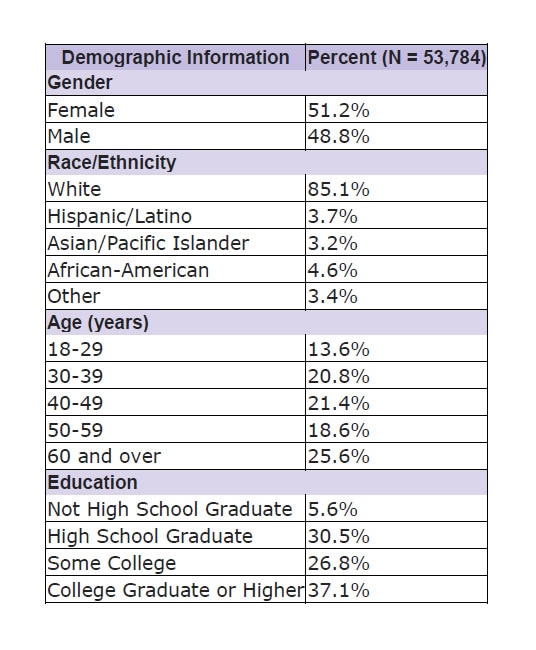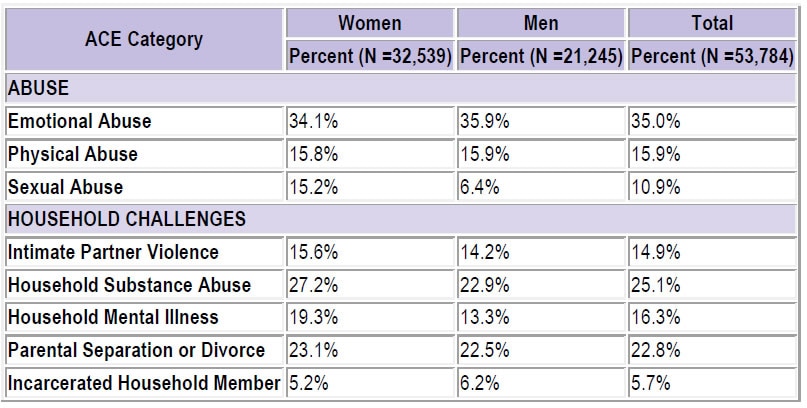In 2010, Washington, DC and ten states (HI, ME, NE, NV, OH, PA, UT, VT, WA, and WI) included the optional ACE module on their state survey making it the largest ACE data collection year. Demographic information is available for 2010 by gender, race, age, and education.
For survey, how ACEs is defined
All ACE questions refer to the respondent’s first 18 years of life.
(2) In the original CDC-Kaiser ACE Study, the question pertained only to the mother being treated violently.
All ACE questions refer to the respondent’s first 18 years of life.
- Abuse (1)
- Emotional abuse: A parent or other adult in your home ever swore at you, insulted you, or put you down.
- Physical abuse: A parent or other adult in your home ever hit, beat, kicked or physically hurt you.
- Sexual abuse: An adult or person at least 5 years older ever touched you in a sexual way, or tried to make you touch their body in a sexual way, or attempted to have sex with you.
- Household Challenges
- Intimate partner violence:(2) Parents or adults in home ever slapped, hit, kicked, punched or beat each other up.
- Household substance abuse: A household member was a problem drinker or alcoholic or used street drugs or abused prescription medications.
- Household mental illness: A household member was depressed or mentally ill or a household member attempted suicide.
- Parental separation or divorce: Parents were ever separated or divorced.
- Incarcerated household member: A household member went to prison.
- Intimate partner violence:(2) Parents or adults in home ever slapped, hit, kicked, punched or beat each other up.
(2) In the original CDC-Kaiser ACE Study, the question pertained only to the mother being treated violently.
Prevalence of ACEs by Category
Number of Adverse Childhood Experiences (ACEs score)
Source: Centers for Disease Control and Prevention. Behavioral Risk Factor Surveillance System Survey ACE Module Data, 2010. Atlanta, Georgia: U.S. Department of Health and Human Services, Centers for Disease Control and Prevention; 2015.



